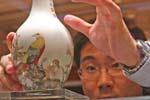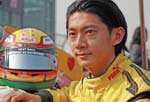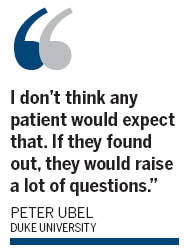Society
Doctors don't always heed their own advice
Updated: 2011-04-13 07:56
(China Daily)
NEW YORK - When doctors step into their patients' shoes, their treatment decisions don't always line up with the advice they give in their clinics, a US survey says.
Faced with hypothetical treatment scenarios, when they imagined themselves as the sick person, doctors more often chose therapies that carried a higher risk of death but fewer severe side effects, said the survey, in the Archives of Internal Medicine.
"I don't think any patient would expect that. If they found out, they would raise a lot of questions," said Peter Ubel of Duke University, who led the research.
"It has nothing to do with morals. It has everything to do with human nature. The doctors don't even know they are behaving this way."
|
|
In the survey, two sets of questions were sent to primary care physicians around the United States. One set asked about different types of hypothetical colon cancer surgery and another about a treatment for bird flu.
The doctors received either a survey that asked them to assume they were the patient, or one that asked them about their advice for patients.
Of the 242 physicians who answered the colon cancer questionnaire, 38 percent went with the survey that carried a higher risk of death but fewer side effects for themselves. By contrast, only a quarter said they would recommend that treatment to their patients.
For the bird flu treatment, the numbers were 63 percent versus 49 percent, respectively, based on 1,600 answers. Although fewer than half the doctors who received the questionnaire returned it, Ubel believes the findings represent most doctors in the United States.
Other experts said the findings didn't surprise them. "There is a problem whenever someone is trying to make a decision for someone else. We know that physicians are not good at guessing what patients want," said Alan Schwartz, a psychologist at the University of Illinois, who was not involved in the study but said it should serve as a wake-up call to doctors.
Reuters
Specials

Share your China stories!
Foreign readers are invited to share your China stories.

Art auctions
China accounted for 33% of global fine art sales.

Waiting for drivers' seat
Lack of sponsorship appears to be why Chinese drivers have yet to race in a Formula 1 event
